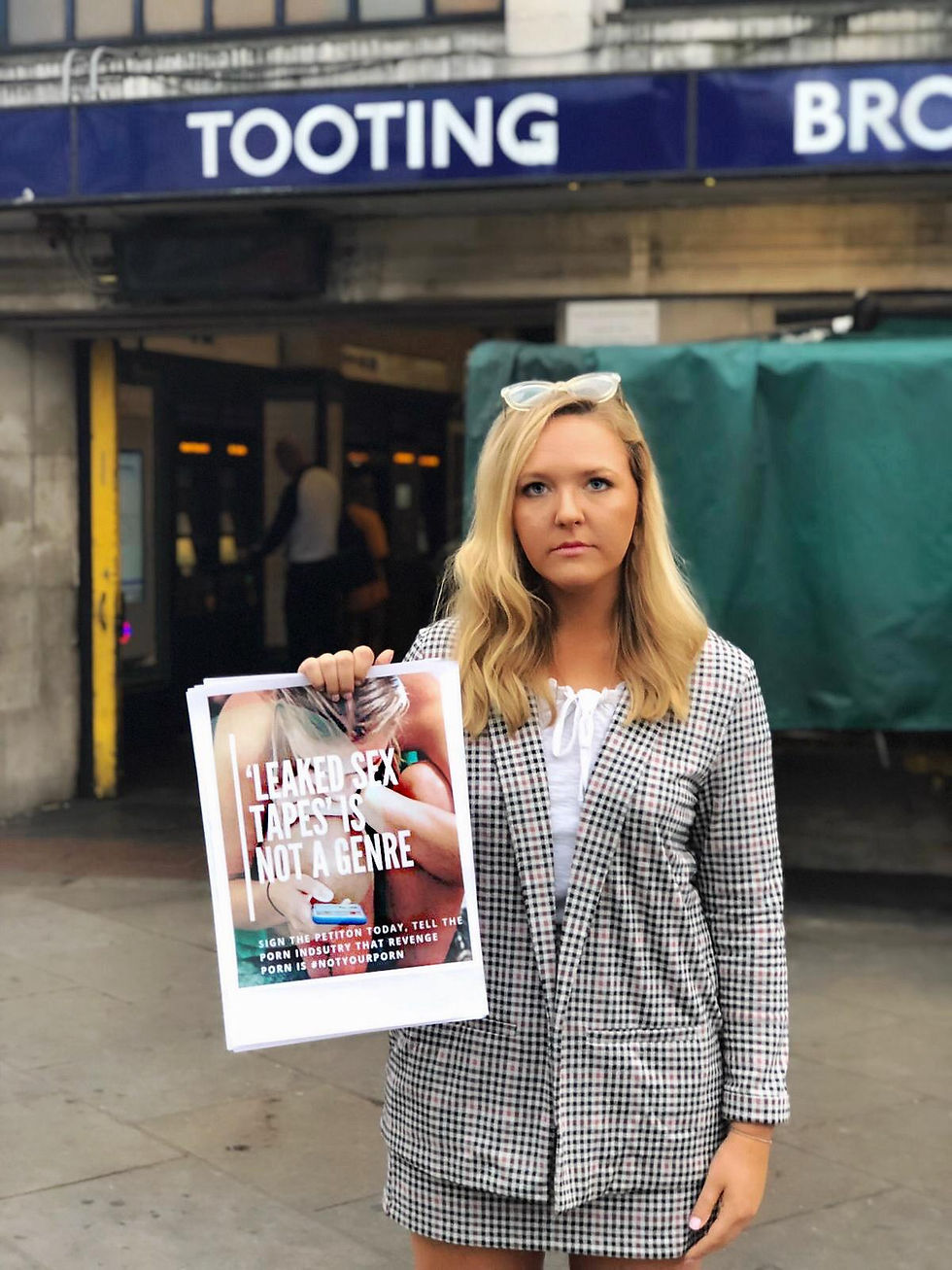#MeToo: What has it done for change?
- Sharin Hussain

- May 31, 2019
- 4 min read
The ‘Me Too’ movement was established in 2006 by Tarana Burke, a civil rights activist. The campaign was created as a voice for survivors of sexual violence. Burke began the campaign to particularly help black women and girls from low wealth communities to get them the help and support that they need.
Actress, Alyssa Milano, shared a tweet back in October 2017, that spiralled out of control, which stated ‘Me too. Suggested by a friend: “If all the women who have been sexually harassed or assaulted wrote ‘me too’ as a status, we might give people a sense of the magnitude of the problem.”

After that tweet was shared, over 92,000 people talked about the subject and thus began the viral hashtag #MeToo. It was established to begin a conversation where many voices shared their sexual violence stories. The platform was used as a way to de-stigmatize the act of surviving by highlighting the extent and influence of a sexual violence worldwide. The social media app has helped establish a global community world-wide where different people could interact together, sharing their stories and not feeling isolated.
Since the uproar of the #MeToo movement, several serious allegations were made against many people in the eyes of the public who are either famous or rich. The biggest stories regarding these allegations include, American producer, Harvey Weinstein, musician, R Kelly, comedian Bill Cosby, and actor, Kevin Spacey. Each individual has been taken into custody and are pending court cases. Bill Cosby is so far the only one that was convicted in 2018 after numerous women came forward with sexual violence that had been occurring from as far back as the mid 60’s.
In France, the hashtag, #BalanceTonPorc, which translates to “Expose Your Pig”, encouraged women to share the names of their harassers on social media. The Minister for Gender Equality, Marlène Schiappa, was so empowered by the movement that she created an all-inclusive bill on sexual harassment which was passed in August 2018. The bill was focused on not just the harsher actions made from sexual harassers but also simple engagements such as making lewd comments on the streets, cyberstalking, and the form of ‘upskirting’ where photos are taken underneath a woman’s skirts. In April 2019, upskirting is now a criminal offense in England and Wales after Gina Martin fought for change after being a victim of this crime at a music festival.
In 2015, five Chinese women protested against sexual harassment on public transport on International Women’s Day. For their actions, they were arrested which started a hashtag #Freethefive and they were finally released after 36 days. They are now known as the Feminist Five who are Li Maizi, Wei Tingting, Zheng Churan, Wu Rongrong, and Wang Man.
The issue with the Chinese government is that they enable censorship which doesn’t allow people to share their voices on the #metoo movement. However, women were able to find a loophole around the censors by using the hashtag ‘Mi Tu’ instead which translates to ‘Rice Bunny’ in Chinese. Luo Xixi, a former student, used Weibo, the Chinese version of Twitter, on January 1st 2018 to share her MeToo story about her professor who sexually assaulted her, her account went viral with over 5 million views. The launch of her story began a ripple effect, giving other women the chance to take a stand and share their stories as well.
In August 2018, the Chinese government announced that a bill was being created regarding sexual harassment in the work place and is part of a new workplace protection that is set to be completed in 2020. Similarly, in Japan, an online petition was initiated in September 2018, to prompt the labour party to organise public discussions on harassment in the workplace which was successful in getting the favours of the minister who announced it will be discussed in 2019.
Other countries such as Spain and Morocco are implementing for consequential and more urgent sentencing for rape convictions. In Morocco these sentencing includes forced marriages and domestic violence. The bill had been debated for years, but a series of high-profile assaults that went viral in 2017 helped spur definitive action which goes to show that voicing our stories has helped implement change and we must never stop speaking to continue to fight for change.
However, whilst there have been many positive reactions regarding a more thorough search for change. Unfortunately, the movement whilst powerful in voicing the stories of women, it does lack equality for many men who have endured abuse, harassment and discrimination. A campaign, 1in6, was founded in 2007, just a year after MeToo to raise awareness of a statistic that researchers have found that at least 1 in 6 men have experienced sexual abuse or assault, whether in childhood or as adults. Sexual assault isn’t gender specific and therefor the voices of male victims need to be heard as well.
If you have or know someone who has experienced abuse, please take a look at these sites or contact them by phone:
Rape Crisis: 0808 802 9999 (12-2:30 and 7-9:30) rapecrisis.org.uk
Victim Support: 0808 168 9111www.victimsupport.org.uk
Women against Rape womenagainstrape.net
RASAC (Rape and Sexual Abuse Support Centre): 0808 802 9999 rasasc.org.uk
Survivors UK – Male Rape and Sexual Abuse Support survivorsuk.org






Comments